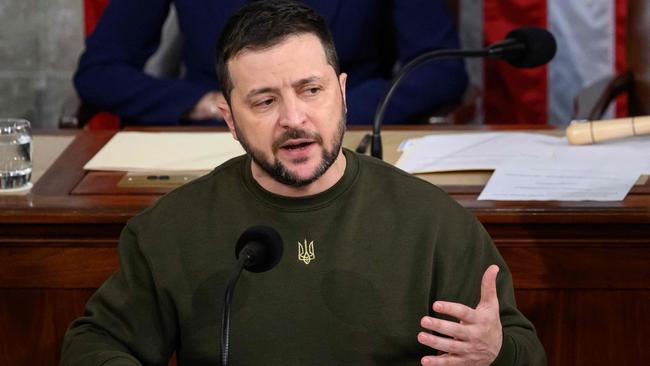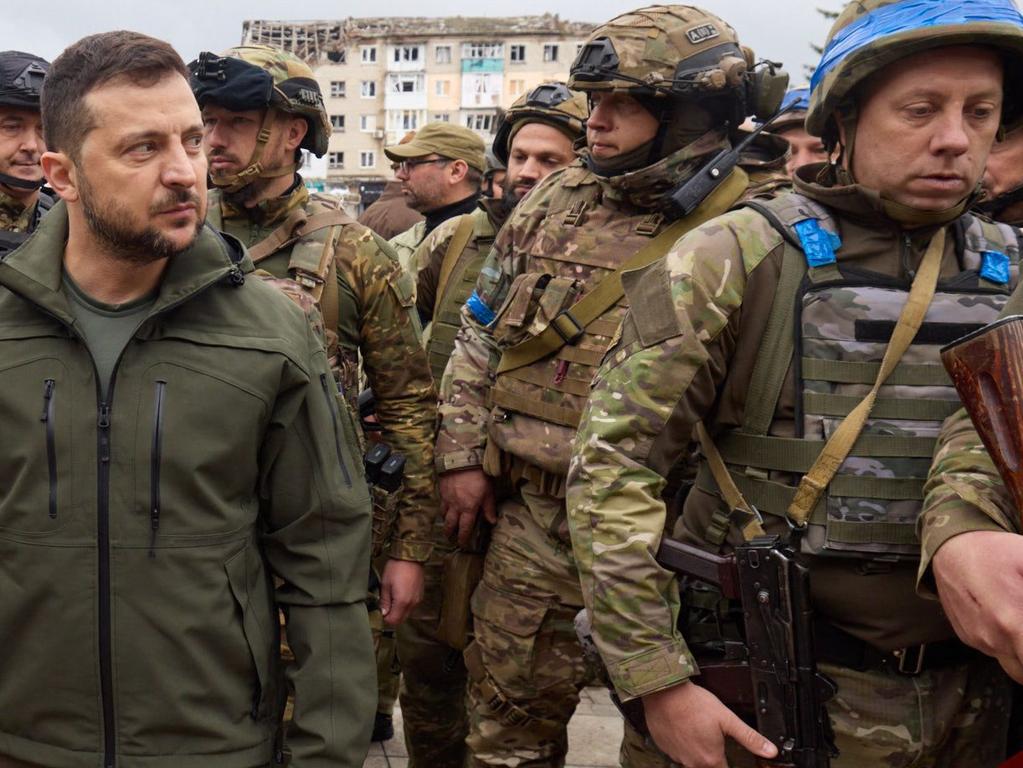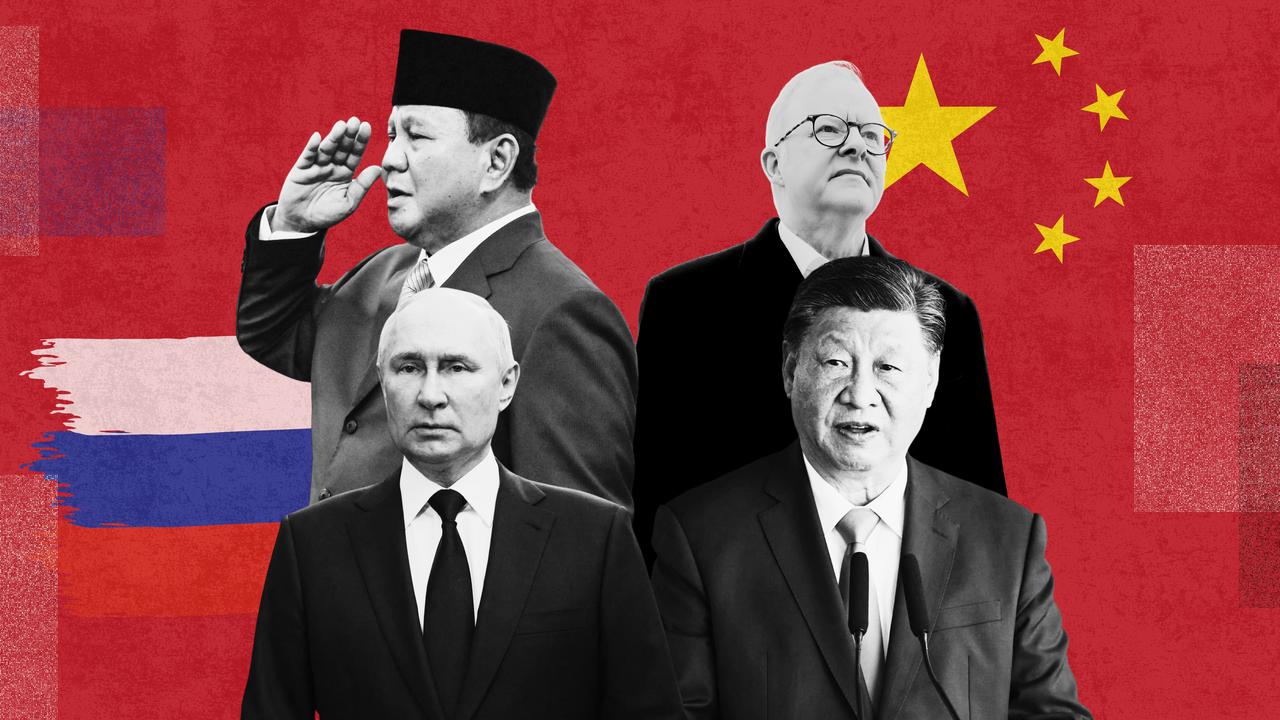
Perhaps even to his own surprise, Zelensky is a masterful communicator. He seemed embarrassed at the over-the-top congressional welcome – “It’s too much for me. All this for our great people” – but speaking in his third language after Russian and Ukrainian, he quietly and confidently declared democracy will ultimately win out against “primitive” and brutal authoritarian regimes.
The core of Zelensky’s message is that Ukraine is on track for victory – he used the word 13 times in a 1900-word speech – “Against all odds and doom-and-gloom scenarios, Ukraine didn’t fall. Ukraine is alive and kicking” and already a global triumph has been achieved: “We defeated Russia in the battle for minds of the world. We have no fear, nor should anyone in the world have it.”
Zelensky’s rhetorical challenge was to persuade congress that more American military support was needed to deliver victory faster in 2023, to attack a minority Republican Party view that the US is doing more than it should and to connect Kyiv’s fight to core American interests.
The only path to a sustainable peace, he argued, was through victory, not by negotiating on Russian terms or accepting a stalemate; “but for the Russian army to completely pull out, more cannons and shells are needed”.
He reached out to Americans as individuals, as families gathering for Christmas and as citizens, using humour, historical links and comparing national values. He appealed directly to American humanitarian instincts: “In two days we will celebrate Christmas. Maybe candlelit. Not because it’s more romantic, no, but because there will be no electricity.” Ukrainian soldiers would be fighting over Christmas just as American soldiers fought “the other tyranny” in the Battle of the Bulge in the winter of 1944.
Referring to the American air defence system, which the Biden administration has agreed to provide, Zelensky said, “If your Patriots stop the Russian terror against our cities, it will let Ukrainian patriots work to the full to defend our freedom.” He compared the hard fighting in Bakhmut to the American victory over the British in the 1777 Battle of Saratoga. “We, Ukrainians, will also go through our war of independence and freedom with dignity and success.”
Here was the masterstroke: “Your money is not charity. It’s an investment in the global security and democracy that we handle in the most responsible way.” The line brought a roar of approval as did the one obvious Churchillian reference: “Ukraine holds its lines and will never surrender.” As political rhetoric the speech was superb, all the more so for Zelensky’s slightly halting English, modestly delivered in his combat green fatigues. One line sounded slightly forced, but nevertheless conveyed a strategic reality the world will confront in 2023. It’s worth quoting at length to appreciate his message: “We already built strong Ukraine, with strong people, strong army, strong institutions together with you. We developed strong security guarantees for our country and for entire Europe and the world, together with you. And also together with you, we’ll put in place everyone who will defy freedom. Put-in.”
Zelensky markedly pronounced “put-in” as “Putin” and then repeated “Putin” at the end of the sentence. The meaning is clear: Victory for Ukraine, indeed for all of us, means that Putin is put in his place. I imagine some European countries, and some figures in Washington DC, will baulk at that implication. A good deal of strategic comment in 2022 argued Putin needed to be given an off-ramp out of the war, so as not to present a defeat to a desperate nuclear weapons power.
Putin’s determination to keep prosecuting a conflict his military has decisively lost has cut off any possible escape route to sustain his leadership. Zelensky’s view is “the Russians will stand a chance to be free only when they defeat the Kremlin in their minds”. That, rather than the ground war in Ukraine, will be the decisive battle of 2023. Have no doubt that the global strategic outlook for 2023 and the middle of the decade is dire. We face nothing less than a clash of political systems between democracy and authoritarianism. The challenge is no less profound than that of the late 1930s. But in a dire strategic situation we should take comfort from the fact 2022 turned out to be a terrible year for the dictatorships and better for democracies.
In February, Putin and Xi Jinping signed their 5000-word “no-limits pact”, an “Axis of Spiel”, loudly proclaiming the failure of democracy and the unstoppable ambitions for global dominance of two hopeful dictators-for-life. By 2022’s end we see the hollowness of these aspirations. Russian military strength amounted to nothing more than a corrupt and incompetent relic relying on convicts, conscripts and mercenaries.
In China, Xi’s clean sweep of all senior Communist Party positions in November could not stop large numbers of brave citizens calling for his resignation, waving blank sheets of paper to protest the party’s incompetent management of Covid. By contrast NATO has grown stronger and Finland and Sweden have abandoned generations of neutrality to join the collective defence effort. European countries including Germany have markedly increased their defence spending and military preparedness. Europe has a clearer understanding that, to quote NATO’s June Strategic Concept, “the People’s Republic of China’s stated ambitions and coercive policies challenge our interests, security and values”.
There is a similar call to action in the Indo-Pacific among the region’s consequential democracies. Japan plans to lift its already considerable defence spending to 2 per cent of gross national product over five years. The Quad, AUKUS and strengthened trilateral security co-operation between Japan, the US and Australia all show a regional willingness to strengthen security and defence capabilities to deter Beijing’s military adventurism.
In June, the Pacific Island states refused to sign a regional security pact with China, leaving an incandescently furious Foreign Minister Wang Yi to stick to “bilateral co-operation as the main channel for co-operation”. For all the failings of recent Australian governments, when pressed Canberra had made the right calls on pushing back against Beijing’s coercion, strengthening domestic resilience and building international co-operation against the dictators. It should have been done sooner and more comprehensively but at least we are now on a path to increase defence capabilities.
Volodymyr Zelensky and the Ukrainian people have become touchstones for what brave leadership looks like in the face of brutal oppression. The lesson of 2022 is that democracies and free peoples will beat tyranny. To quote Zelensky again: “We stand, we fight and we will win because we are united – Ukraine, America and the entire free world.”
That message should give us all hope in 2023. Slava Ukraini.








The Ukrainian President’s address to the joint meeting of the US congress on December 21 is an example of speechmaking at its most powerful. Watch Volodymyr Zelensky to see how simple words and heartfelt delivery can inspire even the most jaded audience. Read the speech to understand the depth of thought that has gone into its writing.